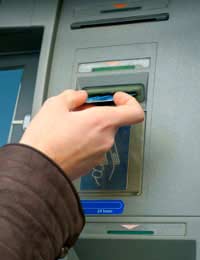Your Rights On Bank Overdraft Charges

Overdrafts are nasty things we all know that. If you dip into the red in your current account on occasion without having agreed an overdraft with your bank, it can be a costly business. If it happens often, it can prove extremely pricey.
The banks charge what can often seem exorbitant amounts in administration fees to cover the payments – in fact, what they’re charging for is notifying you that you’ve gone overdrawn. Lately, though, there’s been a revolt against that, and often the banks have refunded charges they’ve made customers pay – often a few thousand to each customer. So what exactly are your rights regarding overdraft charges?
What the Bank Can Do
If you become overdrawn in your account, your bank is legally allowed to charge you the administrative costs of letting you know about the situation. It’s not uncommon for banks to charge up to £30 for the service. Unfortunately, no legal limit has been set on what the banks can charge. But even at £12, if the bank is making a profit on its actions, it’s actually in contravention of the law.It can charge for every overdrawn transaction, Charges also apply if you exceed your authorised overdraft limit, or if your building society or bank won’t honour a payment you’ve made because there are insufficient funds in your account. In some cases where people have a number of direct debits due and there’s not the money in the account, those charges can run into hundreds of pounds over the course of a month.
What You Can Do
You can claim for what you feel are excess charges by your bank over the last six years. If you’ve kept your bank statements (and you always should), then what you need to do is go through them, highlight all the bank charges for exceeding your overdraft, and total up the amount.However, it’s a simple fact that many people don’t keep their statements. You can obtain them from your bank, although they will charge you for them – which they have every right to do.Once you’ve established the final figure, you should write to you bank or building society, claiming back the excess charges. Plenty of people have done this, and have reclaimed a lot in charges – several companies have been set up to help, and a number of newspaper campaigns have made people aware of the situation. So many people have claimed back charges, in fact, that it’s cost the banks a great deal of money.
However, because of a court test case on the legality of these charges that’s due to begin in January 2008, no banks will resolve any new matters before that case has finished; the most they will do is acknowledge receipt of your complaint. This has been done with the agreement of the Financial Services Authority.
For the future, a lot will depend on the outcome of this court case.If you’ve made a claim with your bank and they’ve offered to settle, that offer will stand, and you have two months in which to accept or reject it. If you’ve already accepted what’s called a “full and final settlement” offer, you will receive that, and you will have to right to claim for any other charges, depending on the court’s decision.
- The Insurance Act 2015: The changing face of insurance?
- How to Avoid Extra Insurance Costs
- The Downsides of Pay Day Loans
- Cash for Gold: What the Story?
- Cashpoint Fraud: Scams Targeting the Elderly
- Your Credit Report: How to Get Hold of it Online
- Bad Investment Advice: New Ruling Could Equal Compensation.
- Christmas Savings Clubs and Schemes: How Do They Work?
- Personal Loans and Your Rights
- What to Expect From Your Insurance
- Your Investment Rights
- Your Rights As a Banking Customer
- What Security Do Credit Cards Offer?


Re: Dealing With Cowboy Builders
I engaged a builder in March to replace roof on my house, secured him to Come and paid £8000 in May he was going to start my roof…
Re: Dealing With Cowboy Builders
@ Mike W: That's incredibly frustrating and unfortunately more common than it should be. You've been very patient, but three weeks…
Re: Dealing With Cowboy Builders
Had our kitchen remodelled, probably 90% done with just floor and trim/plinths etc left do (probably 2/3 days work max) Builder…
Re: Dealing With Cowboy Builders
I had a young man call yesterday (Sunday) saying he was working with the builders working on a roof down the street. He said he…
Re: Booking a Holiday - What if it Goes Wrong
We booked through travel agents for a Jet 2 holiday in September on the Costa Brava. It was advertised as a 4…
Re: Buying a New Car: Your Rights
I agreed to purchase a new car from a Toyota dealer in September with a delivery date in December, today, November 11 I have been…
Re: Dealing With Cowboy Builders
I had a job to do on my house roof to clean the solar panels and guttering etc. to which I went through 'my job qoute ' and chose…
Re: What Are my Rights on a Faulty Television?
My daughter got a TV from her dad and his partner. The TV is less than a year old and the today we removed the…
Re: Dealing With Cowboy Builders
a builder started our kitchen extension started on 4/12/2023, to date the job has not been finished 21/08/2024 and what work that…
Re: What Are my Rights on a Faulty Television?
I got a samsung oled tv just over 2 months ago, i carfully installed the tv and its been on the av stand not…